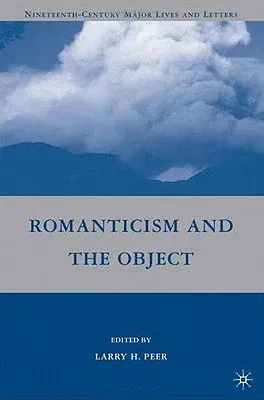L Peer
(Author)Romanticism and the Object (2009)Hardcover - 2009, 13 January 2010

Qty
1
Turbo
Ships in 2 - 3 days
In Stock
Free Delivery
Cash on Delivery
15 Days
Free Returns
Secure Checkout

Part of Series
Nineteenth-Century Major Lives and Letters
Print Length
223 pages
Language
English
Publisher
Palgrave MacMillan
Date Published
13 Jan 2010
ISBN-10
0230617387
ISBN-13
9780230617384
Description
Product Details
Author:
Book Edition:
2009
Book Format:
Hardcover
Country of Origin:
US
Date Published:
13 January 2010
Dimensions:
21.08 x
13.72 x
1.52 cm
Genre:
British
ISBN-10:
0230617387
ISBN-13:
9780230617384
Language:
English
Location:
New York
Pages:
223
Publisher:
Weight:
362.87 gm